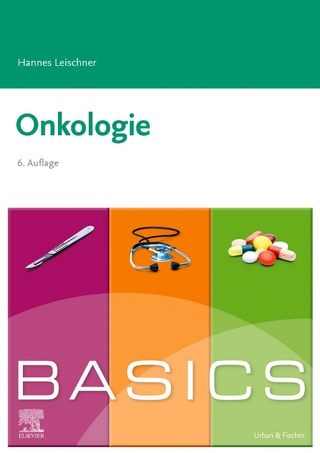
Psycho-oncology
Seiten
1998
Oxford University Press Inc (Verlag)
978-0-19-510614-5 (ISBN)
Oxford University Press Inc (Verlag)
978-0-19-510614-5 (ISBN)
- Titel ist leider vergriffen;
keine Neuauflage - Artikel merken
Zu diesem Artikel existiert eine Nachauflage
A text which expands and updates the information given in Holland and Rowland's Handbook of Psycho-oncology. Chapters on psychosocial risk factors for cancer, genetic risk and cancer screening, and persons with special needs add to the information from the earlier title.
This volume describes the many ways in which mental health professionals have contributed to improving the lot of the cancer patient. A large section of the book is devoted to the psychological, social and behavioral factors that contribute to cancer risk and survival. Changing habits and behavior-reducing smoking, increasing certain foods intake, and decreasing sun exposure, for instance-is a significant factor in cancer risk, and becomes the focus of several chapters. Social class and socioeconomic issues are analysed as far as they affect cancer risk and survival. Two chapters explore the brain-endocrine-immune connections and how they contribute to cancer prevention. Other sections describe new psychological issues brought about by recent advances in cancer research. Sections of the book cover the "worried well" population-healthy people who are or who believe themselves to be predisposed to cancer. Chapters discuss tracing these people's family history, genetic testing, appropriate screening behaviors and counseling.
A major section of the book deals with psychosocial interventions to improve patients' quality of life using psychological, psychoeducational, and behavioral methods. The book covers the use of psychopharmacological drugs, group therapies, nontraditional therapies (art, meditation, alternative medicine), and religious collaboration in helping ease the ordeal. Authors argue the ethical aspects of cancer care, including the ethics of clinical trials, informed consent, physician-assisted suicide, and palliative care. The specifics of caring for children with cancer, and for patients with special needs, such as the elderly and minorities, are accorded special attention.
This volume describes the many ways in which mental health professionals have contributed to improving the lot of the cancer patient. A large section of the book is devoted to the psychological, social and behavioral factors that contribute to cancer risk and survival. Changing habits and behavior-reducing smoking, increasing certain foods intake, and decreasing sun exposure, for instance-is a significant factor in cancer risk, and becomes the focus of several chapters. Social class and socioeconomic issues are analysed as far as they affect cancer risk and survival. Two chapters explore the brain-endocrine-immune connections and how they contribute to cancer prevention. Other sections describe new psychological issues brought about by recent advances in cancer research. Sections of the book cover the "worried well" population-healthy people who are or who believe themselves to be predisposed to cancer. Chapters discuss tracing these people's family history, genetic testing, appropriate screening behaviors and counseling.
A major section of the book deals with psychosocial interventions to improve patients' quality of life using psychological, psychoeducational, and behavioral methods. The book covers the use of psychopharmacological drugs, group therapies, nontraditional therapies (art, meditation, alternative medicine), and religious collaboration in helping ease the ordeal. Authors argue the ethical aspects of cancer care, including the ethics of clinical trials, informed consent, physician-assisted suicide, and palliative care. The specifics of caring for children with cancer, and for patients with special needs, such as the elderly and minorities, are accorded special attention.
1. Societal Views of Cancer and the Emergence of Psycho-Oncology; 2. Psychological and Behavioral Factors in Cancer Risk; 3. Psychological Issues in Cancer Screening; 4. High Genetic Risk of Cancer; 5. Psychological Adaptation; 6. Psychological Responses to Treatment; 7. Psychological Issues Related to Site of Cancer; 8. Management of Specific Symptoms; 9. Psychiatric Disorders; 10. Interventions; 11. Persons with Special Needs; 12. The Child with Cancer; 13. Psychological Issues for the Family; 14. Staff Support and Training in Psycho-Oncology; 15. Ethical Issues in Oncology: A Psychological Framework; 16. Research; 17. International Aspects
| Erscheint lt. Verlag | 4.6.1998 |
|---|---|
| Co-Autor | William S. Breitbart, Paul B. Jacobsen, Marguerite Lederberg, Matthew J. Loscalzo |
| Zusatzinfo | 51 illustrations, bibliography |
| Verlagsort | New York |
| Sprache | englisch |
| Themenwelt | Geisteswissenschaften ► Psychologie |
| Medizin / Pharmazie ► Medizinische Fachgebiete ► Onkologie | |
| Medizin / Pharmazie ► Medizinische Fachgebiete ► Psychiatrie / Psychotherapie | |
| ISBN-10 | 0-19-510614-8 / 0195106148 |
| ISBN-13 | 978-0-19-510614-5 / 9780195106145 |
| Zustand | Neuware |
| Haben Sie eine Frage zum Produkt? |
Mehr entdecken
aus dem Bereich
aus dem Bereich
Korrigierter Nachdruck 2020 mit allen Ergänzungen der UICC aus den …
Buch | Softcover (2020)
Wiley-VCH (Verlag)
42,90 €
Resilienz innovativ stärken : ein Praxishandbuch
Buch | Softcover (2023)
Kohlhammer (Verlag)
36,00 €



